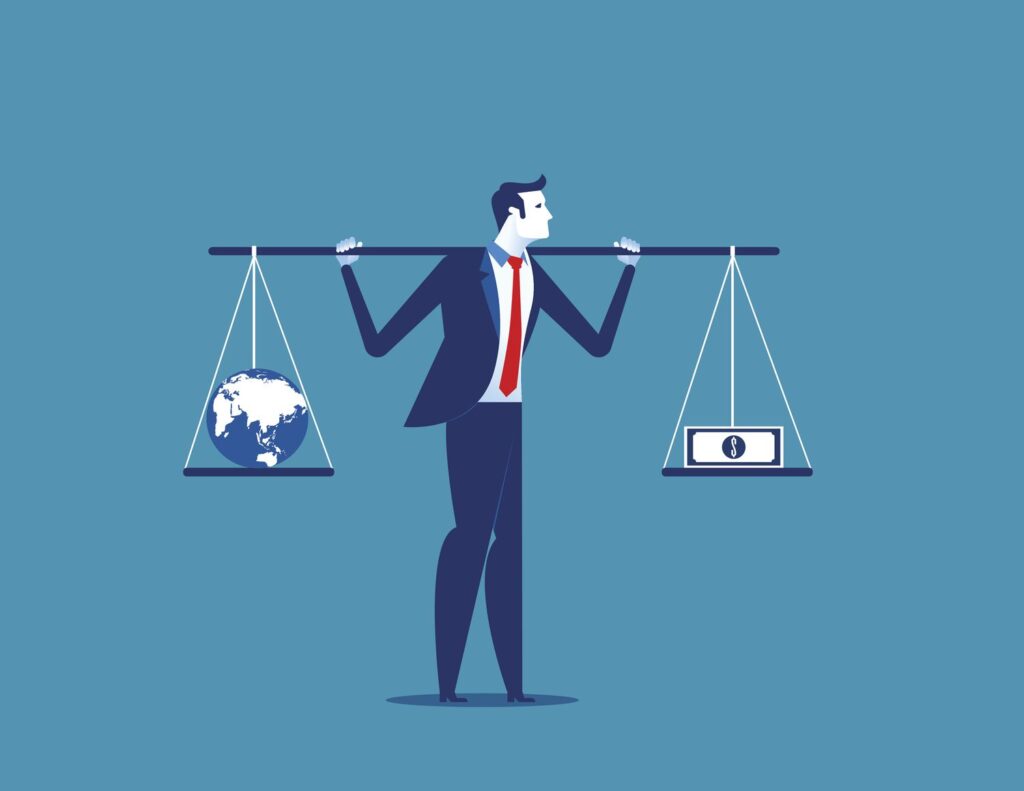The proper role of government in a capitalist economic system has been hotly debated for centuries. Unlike socialism, communism, or fascism, capitalist theory does not assume that a centralized public authority has any role. Yet nearly all economic thinkers and policymakers argue in favor of some level of government influence in the economy of the nation.
Key Takeaways
- In a capitalist economy, trade and industry are driven by private owners and individuals rather than the government.
- The production of goods and services is driven by the forces of supply and demand rather than government-mandated.
- Most proponents of capitalism, from libertarians to Keynesians, support the idea of the government having some involvement in the state of the economy.
Karl Marx said…
“Capital is reckless of the health or length of life of the laborer, unless under comopulsion from society.”
Capitalism Without the State
The term “capitalism” was made famous by the system’s most influential critic, Karl Marx. In his 1867 book Das Kapital, Marx defined capitalists as those who owned the means of production and employed laborers in the pursuit of profits.
Today, capitalism refers to the organization of society under two central tenets: private ownership rights and voluntary trade.
The modern concept of private property stems largely from the 17th-century philosopher John Locke‘s theory of homesteading, in which human beings claim ownership by contributing their labor to transform resources that had been previously unclaimed. Once owned, the only legitimate means of transferring property, he argued, are through trade, gifts, inheritance, or wagers.
In laissez-faire capitalism, private individuals or firms own economic resources and control their distribution.
Voluntary vs. Mandated
Voluntary trade is the mechanism that drives activity in a capitalist system. The owners of resources compete with one another to sell to consumers, who in turn, compete with other consumers to buy goods and services. All of this activity is built into the price system, which balances supply and demand to coordinate the distribution of resources.
These concepts—private ownership and voluntary trade—are external to government by their nature. Governments are public institutions that have enforcement mechanisms including taxes, regulations, police, and military to pursue objectives that are free of the profit concerns of capitalism.
Government Influence in Capitalist Outcomes
Nearly every proponent of capitalism supports some level of government influence in the economy. The only exceptions are anarcho-capitalists, who believe that all of the functions of the state can and should be privatized and exposed to market forces.
Classical liberals, libertarians, and minarchists argue that capitalism is the best system of distributing resources, but that the government must exist to protect private rights through the military, police, and courts.
In the United States, most economists are identified as Keynesian, Chicago-school, or classical liberal.
- Keynesian economists believe that capitalism largely works, but macroeconomic forces within the business cycle require government intervention to help smooth it out. They support fiscal and monetary policy, as well as other regulations on certain business activities
- Chicago-school economists tend to support a moderate use of monetary policy and a lower level of regulation.
- Classical liberal economics is the core philosophy, developed in the 17th and 18th centuries, of democracy and capitalism.
Capitalism vs. Socialism
Capitalism can be seen as the polar opposite of socialism.
In a socialist system, the state owns or strongly regulates the means of production and directs economic activity to address the social and political goals that it has defined. It may set prices, production levels, and employment levels to meet those goals.
Most modern European economies are a blend of socialism and capitalism. Even in the United States, where socialism can be a pejorative term, some critical services such as electric utilities, highways, and education are publicly owned, subsidized, or heavily regulated to protect the public.
What Is a Definition of Capitalism?
Capitalism is an economic system that relies on private rather than public ownership of the means of production. The law of supply and demand determines what goods are produced and the prices that are charged for them.
What Is Laissez-Faire Capitalism?
Laissez-faire is the purest form of capitalism. The French phrase means roughly “leave it alone.” The laissez-faire system eschews government controls or regulations in any form. This purest view tends to crack under the strain of a crisis such as the Great Depression, which required government intervention to alleviate mass suffering.
Who Invented Capitalism?
The invention of capitalism is usually attributed to Adam Smith, an 18th-century Scottish philosopher who argued that a nation grew wealthy only when it allowed its people the freedom to pursue their self-interest. An atmosphere of free trade contributed to the overall well-being of the nation.
The Bottom Line
The theory of capitalism doesn’t define a role for government. Private individuals or companies own the means of production. They pay workers, who in turn use their pay to buy goods and services. The law of supply and demand keeps the system steady.
In reality, government has taken a role in every capitalist system. Monetary policy and fiscal policy are used to influence economic activity and maintain the nation’s economic health.
